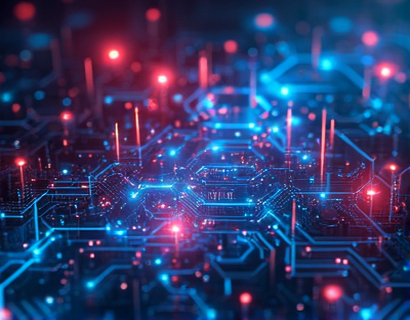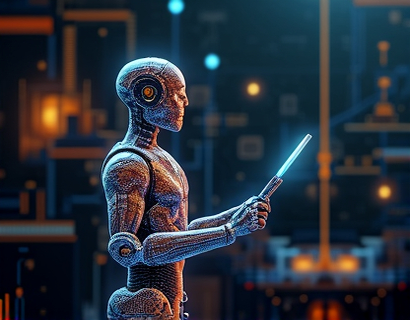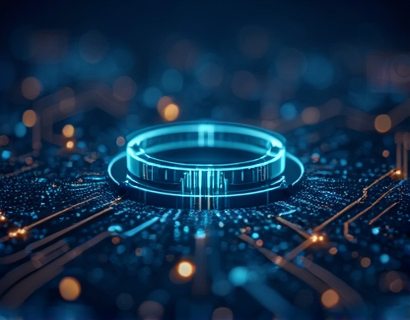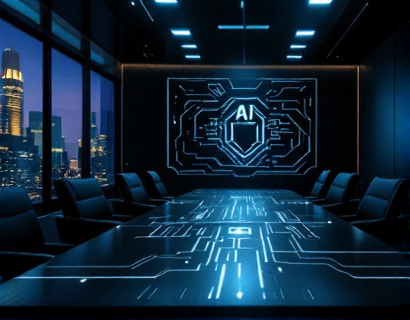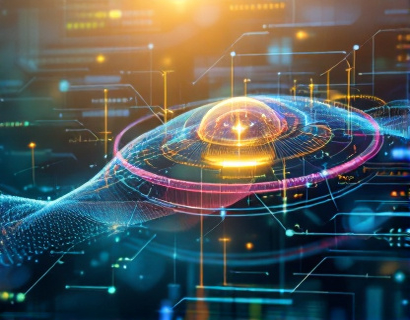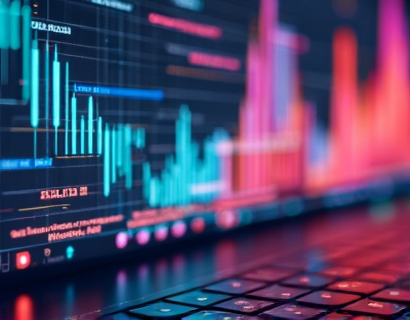Unlocking the Next Level of Digital Transformation: The Synergy of Crypto and AI
The intersection of cryptocurrency and artificial intelligence (AI) is giving birth to a new era of digital transformation, one that promises to redefine how we interact with technology. This convergence is not just a technological advancement but a paradigm shift that is making digital experiences more efficient, secure, and seamless. As we delve into this topic, we will explore how these advanced technologies are reshaping app ecosystems and what this means for tech enthusiasts and professionals.
The Evolution of Cryptocurrency
Cryptocurrency, since its inception with Bitcoin in 2009, has evolved from a niche digital currency to a transformative force in the financial and technological sectors. Initially met with skepticism, cryptocurrencies have gained widespread acceptance and are now seen as a viable alternative to traditional fiat currencies. The underlying blockchain technology, which ensures transparency, security, and decentralization, has opened up numerous possibilities beyond mere transactions.
One of the most significant impacts of cryptocurrency is its role in decentralized finance (DeFi). DeFi platforms leverage blockchain to provide financial services such as lending, borrowing, and trading without intermediaries. This not only reduces costs but also increases accessibility, especially for underserved populations. The integration of AI into DeFi is further enhancing these services by providing predictive analytics, risk assessment, and automated trading strategies.
AI in Cryptocurrency: Enhancing Security and Efficiency
AI plays a crucial role in bolstering the security of cryptocurrency systems. Machine learning algorithms can detect and prevent fraudulent activities by analyzing patterns and anomalies in transaction data. This proactive approach to security is vital in a space where cyber threats are constantly evolving. AI-driven security solutions can adapt in real-time, offering a robust defense against sophisticated attacks.
Beyond security, AI is improving the efficiency of cryptocurrency markets. Smart contracts, self-executing contracts with the terms directly written into code, are powered by AI to automate and enforce agreements. This reduces the need for intermediaries, speeds up transaction times, and lowers costs. AI algorithms can also optimize mining operations, predicting energy consumption and adjusting resources to maximize efficiency and minimize waste.
AI-Driven Cryptocurrency Trading
The trading landscape for cryptocurrencies has been revolutionized by AI. Traders can now leverage AI-powered tools to analyze vast amounts of data, identify trends, and make informed decisions. These tools use natural language processing (NLP) to gauge market sentiment from social media and news sources, providing insights that can influence trading strategies. AI algorithms can execute trades at optimal times, reducing emotional bias and increasing the potential for higher returns.
Robo-advisors, AI-driven investment management tools, are becoming increasingly popular in the crypto space. These platforms use machine learning to create personalized investment portfolios based on individual risk tolerance and financial goals. By continuously monitoring market conditions and adjusting portfolios, robo-advisors offer a hands-off approach to investing in cryptocurrencies.
Blockchain and AI: A Synergistic Force
The combination of blockchain and AI is creating a synergistic force that is driving digital transformation across various industries. Blockchain provides a secure and transparent platform for data storage and transaction processing, while AI enhances the functionality and efficiency of these systems. Together, they are enabling new applications and services that were previously unimaginable.
In the realm of supply chain management, for instance, blockchain ensures traceability and transparency, while AI optimizes logistics and inventory management. This dual approach can significantly reduce costs and improve efficiency, making supply chains more resilient and responsive to market demands.
Healthcare is another sector benefiting from this convergence. Blockchain can secure patient data and streamline record-keeping, while AI can analyze medical data to provide personalized treatment plans and predict disease outbreaks. The integration of these technologies is leading to more accurate diagnostics, better patient outcomes, and more efficient healthcare systems.
Crypto and AI in App Ecosystems
The app ecosystem is at the forefront of this technological revolution, with developers leveraging blockchain and AI to create innovative solutions. These advanced technologies are not only enhancing existing apps but also giving rise to entirely new categories of applications.
One notable example is the development of decentralized applications (dApps). dApps run on blockchain networks, ensuring that data and control are distributed rather than centralized. AI can enhance dApps by providing intelligent features such as chatbots, personalized recommendations, and automated processes. This combination creates a more engaging and user-friendly experience.
Another area where crypto and AI are making waves is in identity verification and management. Traditional identity systems are often centralized and vulnerable to breaches. Blockchain-based identity solutions, powered by AI, offer a decentralized and secure way to manage digital identities. Users can control their data and grant access to services as needed, reducing the risk of identity theft and fraud.
Challenges and Considerations
While the potential of crypto and AI is immense, there are challenges that need to be addressed. Regulatory uncertainty remains a significant hurdle, as governments worldwide are still grappling with how to regulate these emerging technologies. Compliance with varying regulations can be complex, but it is essential for the sustainable growth of crypto and AI applications.
Scalability is another critical issue. Blockchain networks, particularly those using proof-of-work consensus mechanisms, can face performance bottlenecks as the number of transactions increases. AI can help mitigate this by optimizing network operations and developing more efficient consensus algorithms. However, ongoing research and development are necessary to overcome these technical challenges.
Privacy concerns also need to be carefully managed. While blockchain provides transparency, it can also expose sensitive information. AI can assist in anonymizing data and implementing privacy-preserving techniques, but a balanced approach is required to ensure both security and privacy.
Future Prospects
The future of crypto and AI is bright, with numerous opportunities for innovation and growth. As technology continues to advance, we can expect to see more seamless integrations and new applications across various industries. The convergence of these technologies is not just about enhancing existing systems but about creating entirely new paradigms of digital interaction.
For developers and tech enthusiasts, the landscape is ripe with possibilities. Staying informed about the latest developments in blockchain and AI is crucial for staying ahead. Collaboration and knowledge sharing will be key in driving forward the next wave of digital transformation.
In conclusion, the synergy between cryptocurrency and AI is unlocking a new level of digital transformation. By leveraging these advanced technologies, we can create more efficient, secure, and seamless digital experiences. As we move forward, the app ecosystem will continue to evolve, offering exciting opportunities for those who embrace the change.



